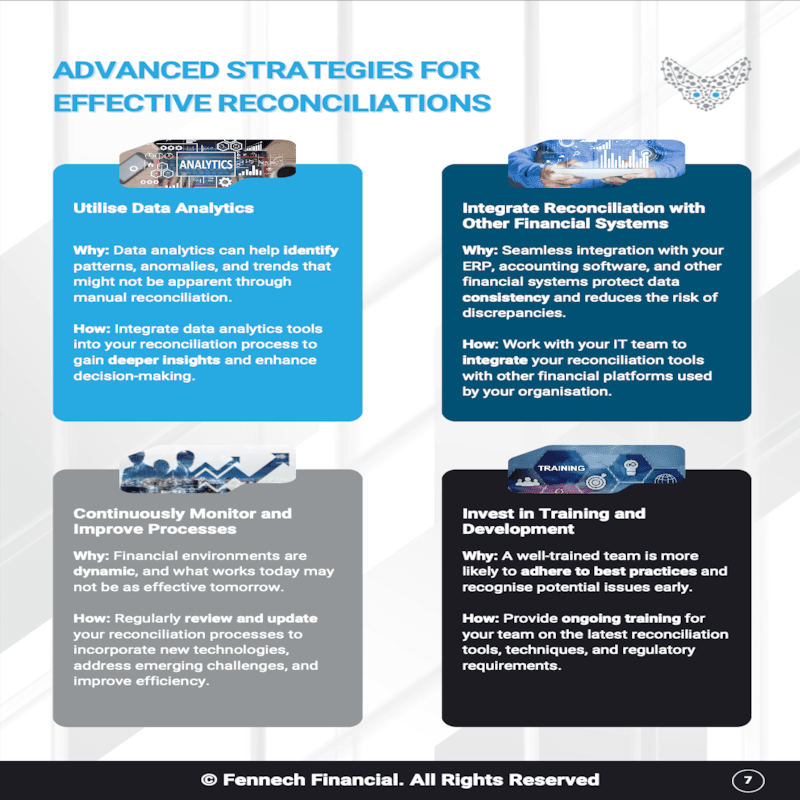Why Efficient Reconciliation Processes Matter to Sales & Revenue Leaders
Operational processes like reconciliations and allocations are often viewed as behind-the-scenes finance functions, but their impact reaches far beyond cash flow and balance sheets. They affect key areas of the business that revenue leaders rely on to maintain strong client relationships and close new deals. Here’s why they are essential:
-
Real-Time Impact on Cash Flow & Supplier Relations: Efficient, real-time reconciliation processes ensure that payments are tracked, posted, and settled promptly. Delays in reconciliation can disrupt supplier relationships and create cash flow challenges, impacting the quality of service offered to clients.
-
Client Satisfaction & Business Risk: Imagine a scenario where a client’s payment isn’t identified in time, causing a delay in product delivery or service execution. This doesn’t just cause operational headaches—it risks damaging your relationship with the client. Worse, dissatisfied clients may escalate complaints or leave negative reviews, which can harm your sales team's ability to close new business.
-
Freeing Up Account Management for Growth: When allocation and reconciliation processes are inefficient, account management teams spend valuable time resolving client issues. That’s time they could have spent nurturing relationships, upselling services, or expanding partnerships. Streamlining these processes frees up your team to focus on driving revenue rather than fixing errors.
The Revenue Cost of Delayed Processes
For sales leaders, time is everything. Time-sensitive services and client deliverables can’t afford to be delayed by outdated or manual reconciliation processes. Every delay in identifying payments, allocating revenue, or reconciling accounts can result in:
Missed revenue opportunities
- Frustrated clients who may churn or reduce their spending
- Damaged reputation and negative feedback that can hurt future sales efforts
- Slower cash flow, reducing the company’s ability to reinvest in growth initiatives
Automation as a Game-Changer
In today’s financial landscape, manual processes and outdated systems can no longer keep up with the complexity and speed required to maintain a competitive edge. Hyper-automated reconciliation and allocation systems are not just a financial convenience—they are essential tools for optimizing revenue generation. By automating these processes at scale, businesses can:
Ensure Accuracy: Automated systems reduce human error and ensure that reconciliations are completed accurately, keeping cash flow smooth and clients satisfied.
Save Time: Automation dramatically cuts down the time spent on manual reconciliation, allowing account managers and sales teams to focus on growth and client retention.
Drive Growth: With automated systems ensuring seamless financial operations, sales and revenue leaders can focus on expanding their client base, improving service offerings, and closing new deals without worrying about the financial backend.
Conclusion: The Strategic Value of Efficient Financial Operations
For revenue leaders, hyper-automated allocation and reconciliation processes are far more than a luxury : they are a strategic necessity.
These processes are vital to maintaining strong client relationships, ensuring timely service delivery, and creating new opportunities for revenue generation.
By supporting investment in efficient financial operations, sales and revenue leaders can protect the business from unnecessary risk, free up resources for growth, and ultimately drive the company’s success in an increasingly competitive market.




















